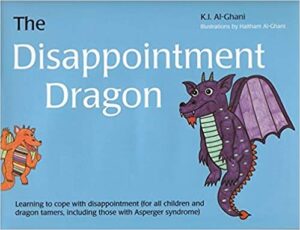One of life’s lessons that all children and young people have to navigate is how to manage disappointment (as do plenty of adults, if the shameful violence and racist abuse that occurred following England’s UEFA European Championship Final loss last Sunday is anything to go by).
Children in foster care will likely have already experienced much disappointment in their young lives, but how can we support children to understand and manage when things do not go their way. Quite often disappointment leads to an emotional meltdown, but with some careful listening, calming, and supporting by foster carers and parents, more positive coping strategies can be developed by the child.
Anne Wahlgren (Anne Wahlgren, www.printableparents.com, 2021) writes:
“Meltdowns with a disappointed child can be tough.
Disappointment is a healthy emotion, and it is necessary for children to feel it. We don’t want to shield our children from disappointment as it is a critical emotion for driving resiliency.
Disappointment can help children understand there is something they desire. If we teach our young children to manage disappointment well, it could potentially motivate good decision-making.”
There are 8 strategies that she suggests can help to manage a child’s disappointment:
- Name the feeling as disappointment
The first step in to help your child manage disappointment is to name the feeling. When your child is dealing with any big feeling, it can be helpful to identify the feeling for him or her.
Your child doesn’t necessarily know why he is feeling awful.
Your child just knows something happened and now he feels out of control.
As the safe adult, naming it signals to your child that disappointment is a known feeling. Disappointment doesn’t need to be a big, scary unknown. Naming emotions can remove some fear.
Second, naming the feeling gives your child the vocabulary that it a necessary stepping stone for emotional intelligence and self-regulation. Being able to identify emotions is the first step in learning about feelings and developing the skills to manage them.
Troubleshooting Tip:
If you have an especially intense child, see if naming the feeling makes the meltdown worse. If it does, wait until your child is calmer to name the emotion (useful triangle chart in resource section below to help with this). Introverted or intense children might need more time to be able to name it.
- Affirm your child’s capabilities
After naming the disappointment, it is important to affirm that your child is capable of managing the big feeling. This communicates confidence to your child.
Affirming your child’s competence also helps your child develop a confident inner voice. By routinely communicating that you believe your child is capable of handling a big feeling, your child will be able to coach himself.
- Lead with empathy
As modern parents, we something struggled with our own patience levels when there are so many demands on our time. Thus, there is often a temptation to minimize our child’s disappointment and say, “it’s not that big of a deal.”
Truthfully, it only seems like it’s a small deal to you because you are an adult, and you have a lifetime of practice managing your disappointments. Resist the temptation to minimize your child’s feelings. Instead, lead with empathy and acknowledge that this feeling is hard for your child. This is a way to normalize the feeling and teach that feelings are healthy.
My husband routinely tells our daughter, “When I was your age, I’d feel the same way.” He then elaborates with a story which my daughter finds helpful.
- Ditch dismissing
The opposite of empathy is contempt, and it creates and teaches a destructive shame cycle. By dismissing, or worse getting angry and shaming your child, he or she will begin to feel ashamed and internalize the feelings.
Initially it might seem like your child is dealing with the emotion because the disruptive behaviour has gone away, but potentially your child might be just burying it deeply. At some point, these feeling will erupt in an unpleasant way.
While you might need your child to change his or her behavioural response to feeling disappointed, we want to communicate with empathy that some feelings are big and harder to handle. Dismissing doesn’t teach skills.
Dig deep in yourself if you feel the temptation to dismiss and bring some empathy to yourself. It is hard to parent a child through big feelings. Most likely, no one coached you through your big feelings so you’re learning alongside your child.
- Give some space
Often children need space to work through their feeling. Give your child physical space to feel their feeling. You might want to say, “I’m going to give you some space to work through your disappointment” and walk away.
Allowing your child to work through the feeling on their own is another way to affirm their competence. It is also respectful when you notice your child needs physical space to safely process the feeling.
Giving space might also mean you just provide your child a safe emotional space to work through the feeling. Often that means you just need to quit talking. Be quiet. And just let your child take time to work through the feeling.
Troubleshooting Tip:
If you have an anxious, sensitive child, giving too much space may feel more like abandonment.
This is a time when you need to use your best judgment about your child: introverts want space, extroverts need their people.
- Get close to your child
The opposite is also true depending on your child. If you have a child who feels more comfortable with you close by or with your physical touch, hang out with them and offer hugs and cuddles if that’s what your child needs. You might want to ask, “Would you like a hug while you feel disappointed?”
It might be hard to watch your child struggle with the big feeling but by staying calm and present, you are projecting confidence in your child’s competence.
Troubleshooting tip:
Some intense or sensitive kids don’t want physical touch when they are feeling out-of-control. So, if this doesn’t seem to work, observe how your child feels about touch when calm and when emotionally escalated.
- Observe the ending of the disappointment
One great thing about feelings is they do diminish over time. What was once intense disappointment, will eventually turn to mild disappointment or even disappear altogether for our children.
A helpful strategy is to observe the ending of the feeling and communicate it to your child.
Do you ever play the “So Big” game with your baby? In this game the parent says, “How big is Johnny?” Then she spreads her arms wide apart and says, “So big!”
You can do something similar to quantify the intensity of big feelings. So, you’ll say, “You’re feeling really disappointed” with your arms spread wide. As the feeling begins to diminish, you can quantify the intensity of the feeling by holding your arms about 12 inches apart. You can say, “You’re feeling a medium disappointment.”
When the feeling seems to have finished, you’ll say “Your disappointment is done” with your hands clapped together. As you practice observing the ending of a feeling with your child, you are teaching your child that feelings do end even if they feel incredibly intense at the beginning.
- Practice Calming Strategies
Calming strategies can help a child get regulated enough to manage their disappointment. Taking deep breaths, counting to 10, and colouring a picture are all easy and manageable calming strategies.
It’s critical to discuss the strategies ahead of time and model them for your child (see the table in resources section).
Troubleshooting Tip:
Calming strategies only work when they are pre-taught and generally won’t work in the height of a meltdown. Try to catch your child before the meltdown escalates.
Bonus tip: Understand the emotion behind disappointment
At the root of disappointment is sadness. When your child experiences disappointment, they are experiencing a loss.
The meltdown that can accompany disappointment is often driven by the grief from a loss. It might just look like an ice cream cone on the ground to you, but to your child, it was also the experience of eating the ice cream that was lost.


– Books
For 4-8 years
 I Can Handle It
I Can Handle It
By Laurie Wright & Ana Santos
Our family likes to use the mantra “You can handle it.” We got this mantra from the book, I Can Handle It, which I strongly recommend. My daughter immediately started applying this mantra in her life after reading the book.
(recommendation by Anne Walhgren, www.printableparents.com, 2021)
For 6-13 years
 The Disappointment Dragon: Learning to Cope With Disappointment (for all children and dragon tamers, including those with Asperger syndrome)
The Disappointment Dragon: Learning to Cope With Disappointment (for all children and dragon tamers, including those with Asperger syndrome)
By K.I. Al-Ghani
When things don’t go our way, the Disappointment Dragon can come to visit and take us down to his home in the Valley of Despair…
The fun characters in this charming, fully illustrated storybook will help children to cope with, and discuss openly, their feelings of disappointment. There are many creative suggestions on how to banish the Disappointment Dragon and an introduction for adults explaining disappointment in children and how they can help.
(review by www.amazon.co.uk, 2021)
Sources
https://printableparents.com/8-strategies-to-help-your-child-manage-disappointment-free-printable/ – Anne Wahlgren’s article
https://youngminds.org.uk/resources/school-resources/when-emotions-explode-poster/ – Young Minds, When Emotions Explode
https://falling-feather-6363.ck.page/8be62146c3 – ‘I Can Stay Calm’ Printable Chart
By Lynsey Dobbs – Senior Recruitment Officer, UK Fostering
